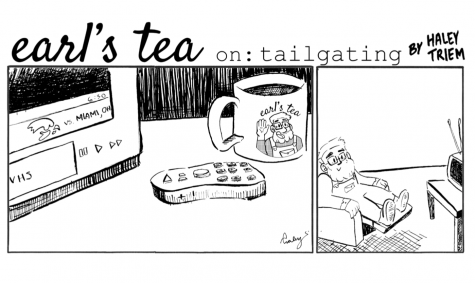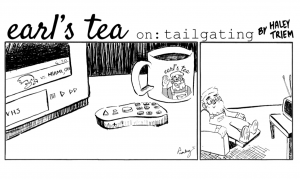Opinion: Cheaper textbooks won’t solve broader cost problems
While course materials can be expensive, the real financial issue for college students is rising tuition rates.
Photo illustration by Ryan Adams
September 4, 2019
According to a recent CBS News article about the Pearson textbook company, college textbook prices have risen four times faster than inflation. In an earlier CBS report on a College Board study, the news organization reported that “over the course of a year, the average college student spends more than $1,200 on books and materials.”
While all of that sounds like a lot of money, it’s dwarfed by rising tuition costs, which are the real financial burden faced by college students.
If college is really going to be made more affordable, the focus should be on rising tuition rates. According to the Wall Street Journal, the cost of admission is climbing four times the rate of inflation.
UI Student Government leaders have often told the state Board of Regents to consider the “holistic” cost of pursuing higher education when raising tuition — keeping in mind that as they vote to raise tuition, students also must pay for housing, food, and any supplemental educational materials they may need.
There are a variety of strategies and policies that could mitigate the financial burden on students, but cheaper textbooks would merely be a drop in the bucket.
This semester I am enrolled in 14 credit hours, and the total cost of my textbooks was $357.67 based on the Iowa Hawk Shop prices listed on MyUI. But I went online, buying six textbooks on Amazon and one on eBay. I only bought one at the Hawk Shop, and the total for all my course material was much smaller than the original MyUI listing: $180.11.
A potential exception to my argument is courses that require textbooks with access codes for online coursework. Between my time at the UI and community college, I have only had one class that required a textbook with an access code. The book was $145, and it had that price tag because it was a brand new edition, and with it being in a digital format, renting or buying a used copy was not an option.
I spent some time browsing the required texts on MyUI in various fields. I thought I might have more expensive reading material in courses such as chemistry and biomedical engineering. For instance, the two books necessary to take college physics I were quite pricey. The Iowa Hawk Shop listed them at $170 and $48, respectively. That’s not chump change to spend on books for a single class — it totaled almost the amount that I spent on books for all four of my courses this semester.
That figure probably does not account for the deals available to students on websites such as Chegg, Amazon, and others where used copies can be rented or purchased.
Having said that, it’s important to consider that STEM fields are generally more complicated and dynamic than my own — no offense to my fellow political-science and journalism majors. New research in the sciences is constantly emerging and the changes are profound. The research in these fields is more expensive to conduct and analyze.
Another common complaint is that professors are not price-sensitive in selecting their required texts. The opposite has been true in my experiences at community college and here at the UI. While reviewing the syllabi in my courses, professors often said that older, less expensive editions were fine. Course costs were minimized in most cases.
This brings me back to my original point: Tuition costs are primarily a financial problem for students looking to continue their education after high school. If an earnest effort was made to make an undergraduate degree more affordable, the overwhelming focus would be on lowering tuition.
I have plenty of problems to complain about as a college student, and textbook prices are near the bottom of the list.
Columns reflect the opinions of the authors and are not necessarily those of the Editorial Board, The Daily Iowan, or other organizations in which the author may be involved.





















